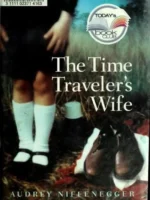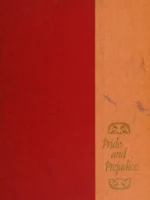Jane Eyre, Charlotte Brontë, 1847
- Author: Charlotte Brontë
- Genre: Romance
- Publisher: Penguin Classics
- Publication Year: 1847
- Pages: 532
- Format: Paperback
- Language: English
- ISBN: 978-0141441144
- Rating: 4,1 ★★★★☆
Jane Eyre Review
About
First published in 1847, Charlotte Brontë’s Jane Eyre is a cornerstone of English literature—a gothic romance, a coming-of-age story, and a quiet revolution in how women’s inner lives were written. Through Jane’s voice—fierce, moral, and yearning—Brontë gave readers a heroine who demands respect before love, independence before comfort. The novel’s emotional honesty still feels radical today.
Overview
Jane Eyre, an orphan raised in cruelty, grows up to become a governess at Thornfield Hall, the estate of the brooding and secretive Mr. Rochester. What begins as a restrained professional relationship deepens into something more dangerous and profound. The gothic atmosphere—locked rooms, ghostly laughter, sudden fire—mirrors Jane’s internal conflict between passion and principle. When she discovers Rochester’s hidden past, her moral clarity forces her to flee, even at great cost. Her journey becomes one of self-respect as much as survival.
Summary
(light spoilers) From childhood at the abusive Reed household to the strict discipline of Lowood School, Jane’s life begins as endurance training. At Thornfield, her intelligence and self-possession earn Rochester’s respect, and their exchanges crackle with equality rare for the era. But the revelation of his secret—his mad wife, Bertha Mason, hidden in the attic—shatters her world. Jane leaves, destitute yet determined to keep her integrity intact. She’s taken in by kind strangers, finds independence as a teacher, and inherits unexpected wealth. Only when Rochester, humbled by loss and injury, is free in spirit does Jane return—not to complete him, but to meet him as an equal. Their reunion is quiet, adult, and deeply earned.
Key Themes / Main Ideas
• Independence — love must coexist with self-respect.
• Gender and morality — a woman’s right to feel and to think.
• Passion versus duty — the pull between heart and conscience.
• Religion and redemption — faith as personal conviction, not submission.
• Social class — humanity cutting through hierarchy.
Strengths and Weaknesses
• Strengths — A powerful first-person voice that shaped generations of fiction; gothic tension balanced by psychological realism.
• Strengths — Jane’s integrity and intelligence make her timeless; Rochester’s flaws deepen rather than weaken the romance.
• Weaknesses — Some moral speeches slow the pacing; the supernatural hints may puzzle modern readers.
• Weaknesses — Bertha’s portrayal, while symbolic, reflects colonial prejudices of its time.
Reviewed with focus on themes, audience, and takeaways — Charlotte Brontë
| pa_author | Charlotte Brontë |
|---|---|
| ISBN | 978-6-267-40905-8 |
| pa_year | 2025 |
| Pages | 294 |
| Language | English |







